Abstract
The ecologic relationship between the incidence of reactive serologic tests for syphilis among 2,229 newborns and diagnoses that included cocaine dependence among 17,219 hospitalized women ages 15-44 in New York City was investigated. Citywide, race-specific and zip code-specific annual rates were computed. The residential zip codes were grouped into quartiles by cumulative level of diagnoses that included cocaine dependence, and citywide and race-specific annual rates of congenital syphilis were computed in each quartile. From 1982 to 1988, the citywide rate of congenital syphilis for all races increased from 1.2 to 5.8 per 1,000 live births, while rates of cocaine dependence discharges increased from 23.3 to 423.3 per 100,000 women of all races during the same period. For African American infants, citywide rates of congenital syphilis increased from 1.8 to 10.6 per 1,000 live births. In quartile-specific analyses of African American women and newborns, rates of congenital syphilis increased from 1.9 to 14.6 in the highest cocaine-exposure quartile; from 2.1 to 12.4 in the third; from 1.5 to 7.6 in the second; and, from 1.6 to 2.8 in the lowest cocaine-exposure quartile. This study provides support for the hypothesis that cocaine dependence in women may be associated with congenital syphilis infection.
Full text
PDF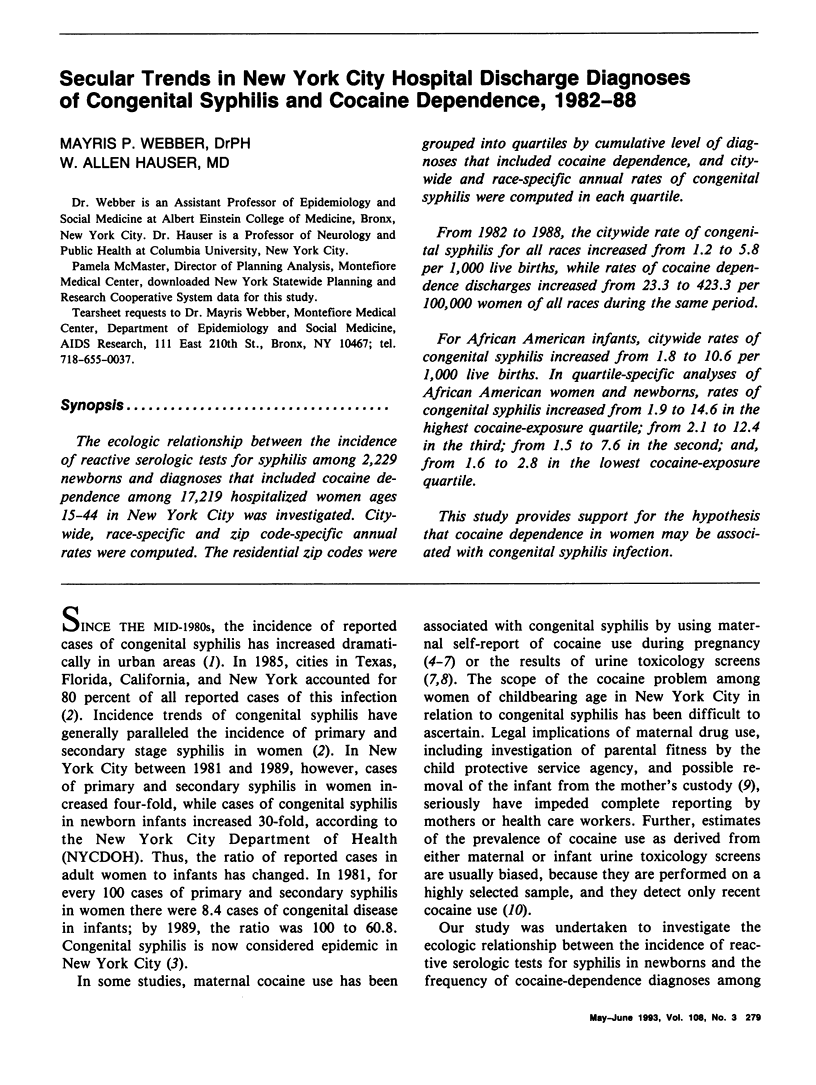
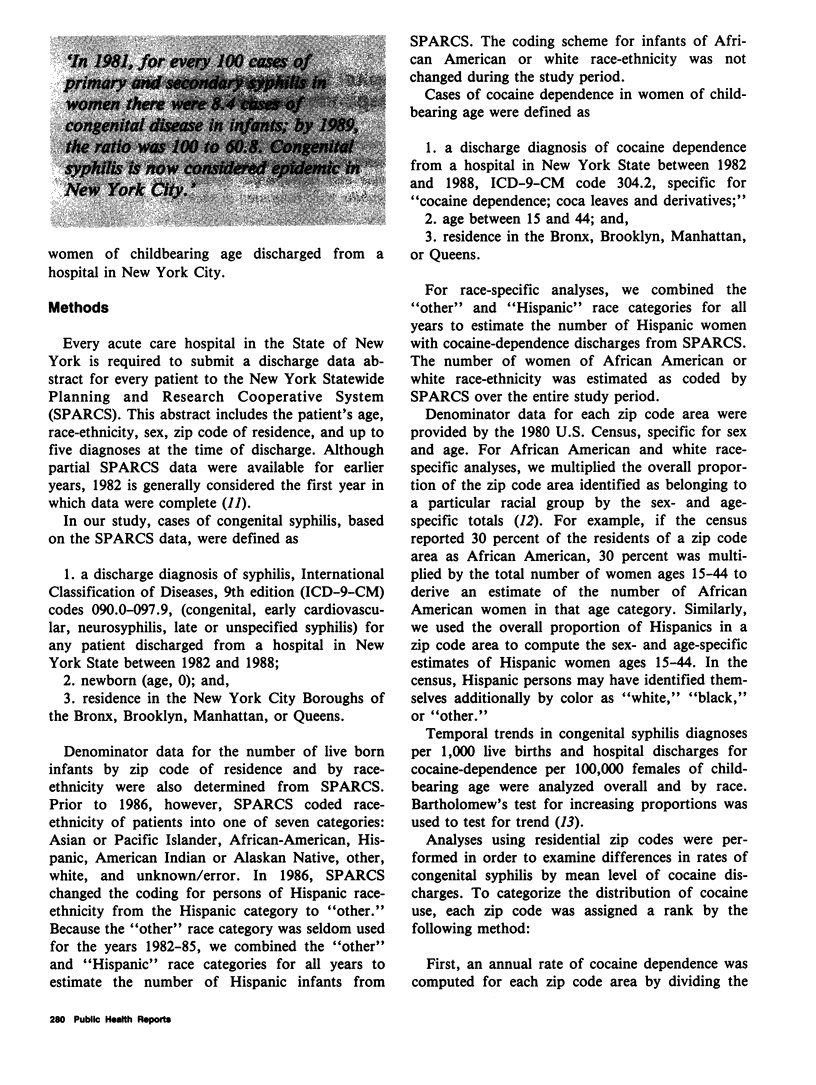
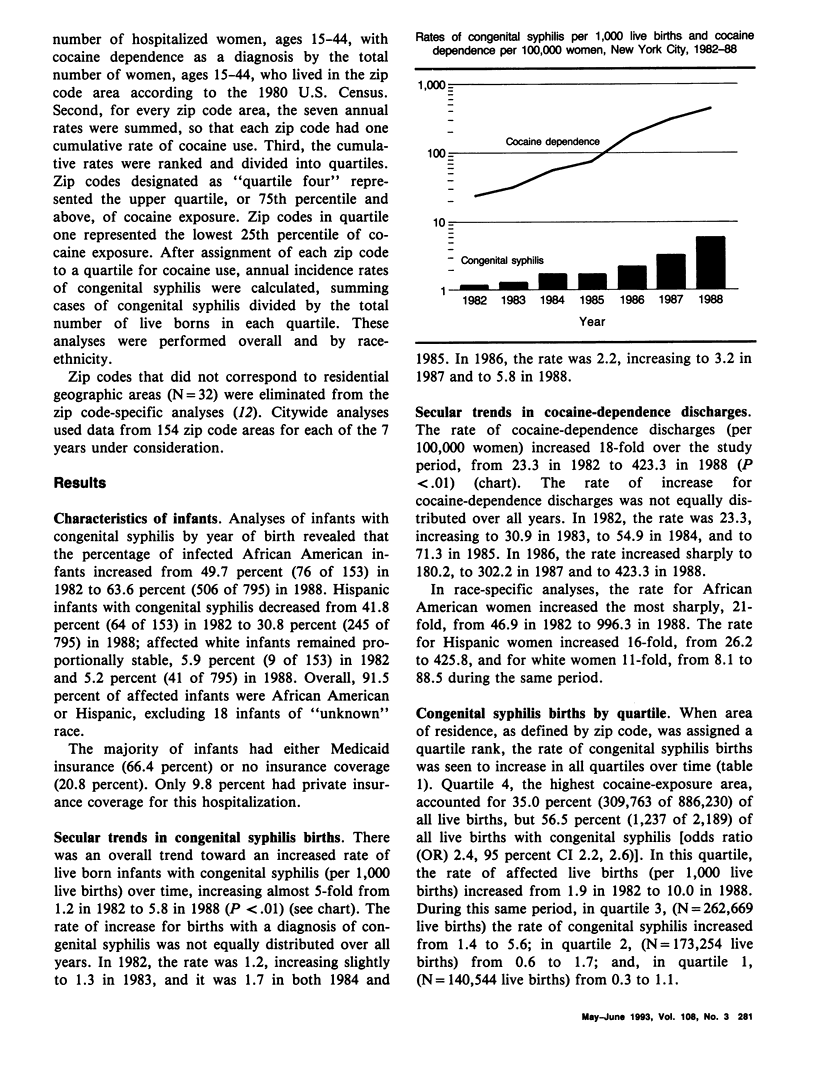
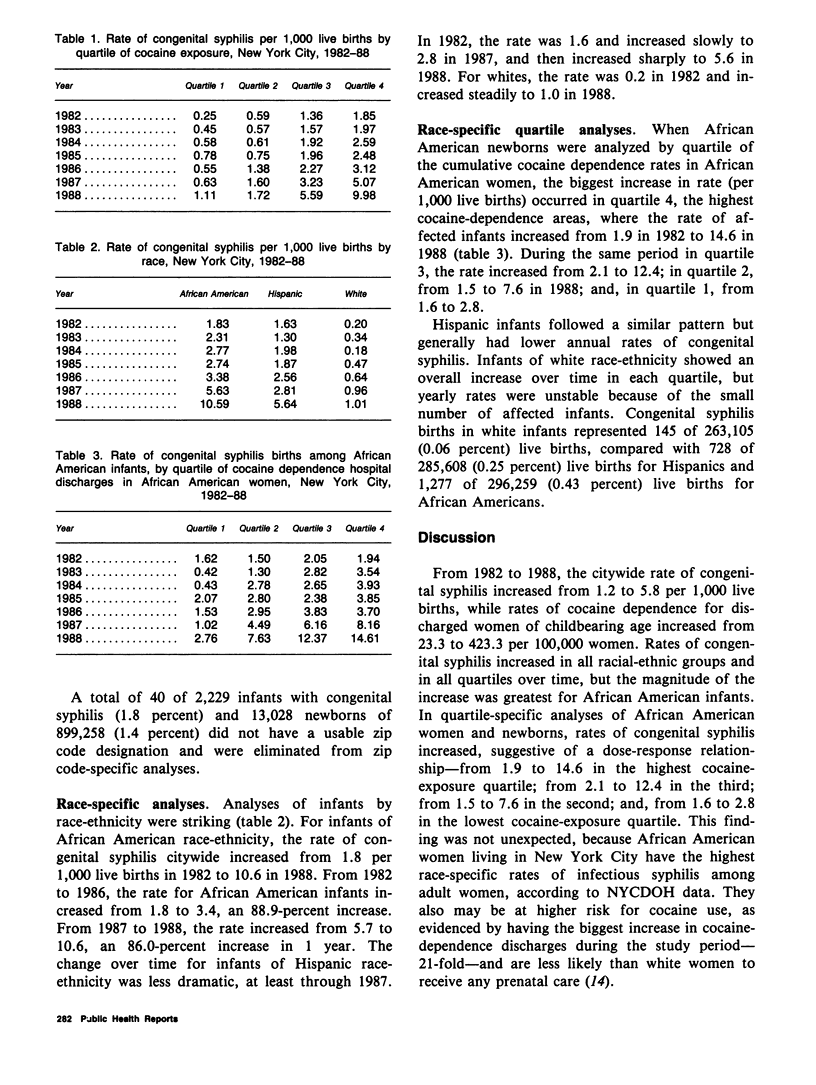
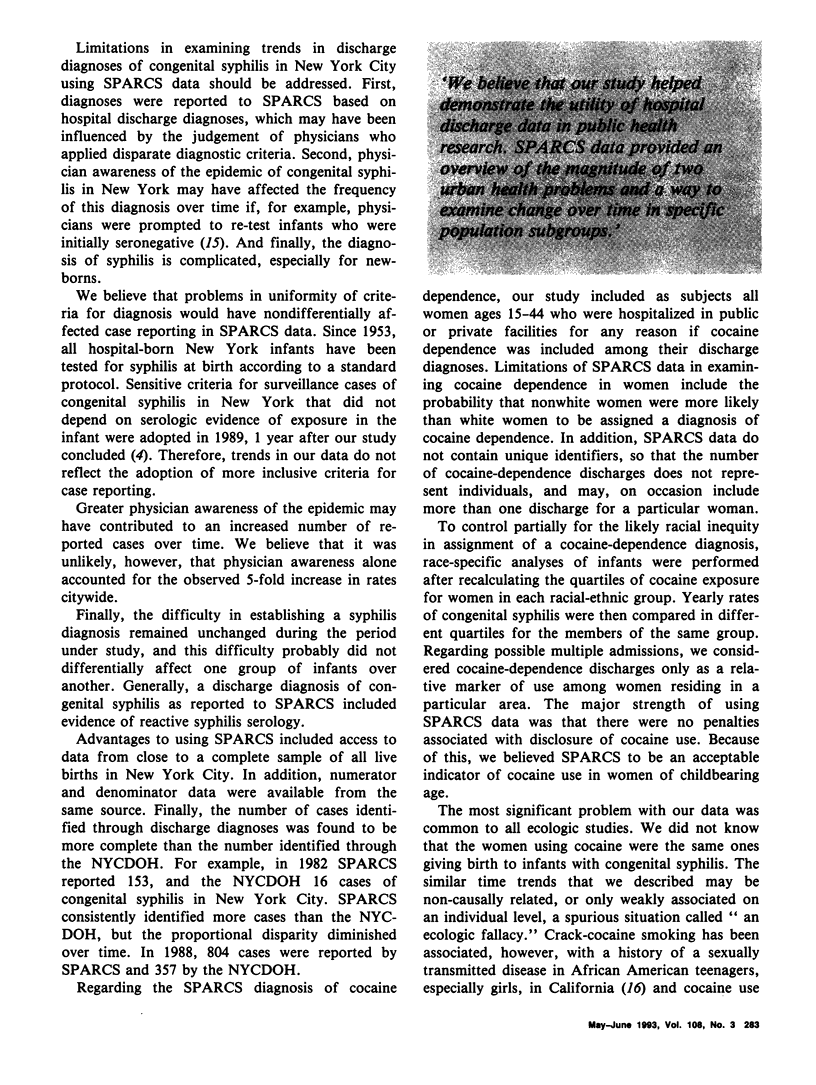
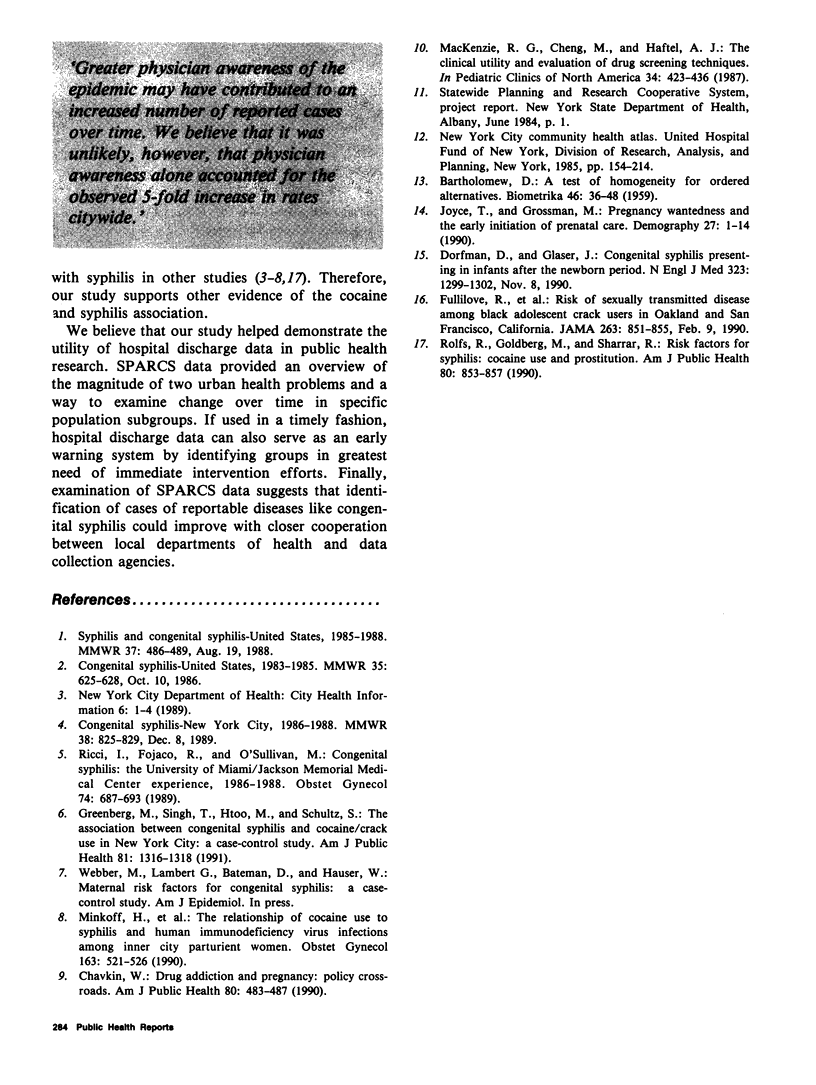
Selected References
These references are in PubMed. This may not be the complete list of references from this article.
- Chavkin W. Drug addiction and pregnancy: policy crossroads. Am J Public Health. 1990 Apr;80(4):483–487. doi: 10.2105/ajph.80.4.483. [DOI] [PMC free article] [PubMed] [Google Scholar]
- Dorfman D. H., Glaser J. H. Congenital syphilis presenting in infants after the newborn period. N Engl J Med. 1990 Nov 8;323(19):1299–1302. doi: 10.1056/NEJM199011083231902. [DOI] [PubMed] [Google Scholar]
- Fullilove R. E., Fullilove M. T., Bowser B. P., Gross S. A. Risk of sexually transmitted disease among black adolescent crack users in Oakland and San Francisco, Calif. JAMA. 1990 Feb 9;263(6):851–855. [PubMed] [Google Scholar]
- Greenberg M. S., Singh T., Htoo M., Schultz S. The association between congenital syphilis and cocaine/crack use in New York City: a case-control study. Am J Public Health. 1991 Oct;81(10):1316–1318. doi: 10.2105/ajph.81.10.1316. [DOI] [PMC free article] [PubMed] [Google Scholar]
- Joyce T. J., Grossman M. Pregnancy wantedness and the early initiation of prenatal care. Demography. 1990 Feb;27(1):1–17. [PubMed] [Google Scholar]
- MacKenzie R. G., Cheng M., Haftel A. J. The clinical utility and evaluation of drug screening techniques. Pediatr Clin North Am. 1987 Apr;34(2):423–436. doi: 10.1016/s0031-3955(16)36224-1. [DOI] [PubMed] [Google Scholar]
- Minkoff H. L., McCalla S., Delke I., Stevens R., Salwen M., Feldman J. The relationship of cocaine use to syphilis and human immunodeficiency virus infections among inner city parturient women. Am J Obstet Gynecol. 1990 Aug;163(2):521–526. doi: 10.1016/0002-9378(90)91188-i. [DOI] [PubMed] [Google Scholar]
- Ricci J. M., Fojaco R. M., O'Sullivan M. J. Congenital syphilis: the University of Miami/Jackson Memorial Medical Center experience, 1986-1988. Obstet Gynecol. 1989 Nov;74(5):687–693. [PubMed] [Google Scholar]
- Rolfs R. T., Goldberg M., Sharrar R. G. Risk factors for syphilis: cocaine use and prostitution. Am J Public Health. 1990 Jul;80(7):853–857. doi: 10.2105/ajph.80.7.853. [DOI] [PMC free article] [PubMed] [Google Scholar]


